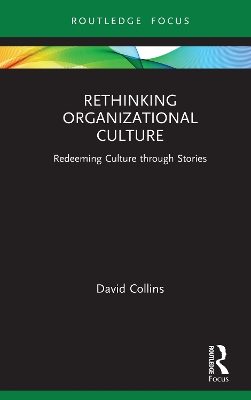Routledge Focus on Business and Management
3 total works
We tend to assume that we may divide our activities into talk and action. In so doing we tend to suggest that talk is subordinate to action.
Taking issue with these presumptions, Stories for Management Success: The Power of Talk in Organizations argues that talk is central to what managers do. Indeed it argues that, for managers, ‘walking the walk’ necessarily implies ‘talking the talk such that storytelling is now central to managerial work’. Noting that managerial talk is increasingly located within an account of storytelling the book offers a critical review of the academic debates associated with telling tales at work and uses this critical reflection to shape and guide those who would realise the power of talk. Thus, the book concludes with six key questions designed to prompt both introspection and action on storytelling in an organized context. With reflections on the relevant management research, the author provides a scholar's digest to aid management thinking and practice.
This book offers an examination of the processes of organizational storytelling and has been designed to allow practitioners of management to recognise and in so doing to unleash the power of talk in organizations.
What is organizational culture? Why does it matter? This book demonstrates that conventional wisdom on this fundamental business topic has surpassed its usefulness. The author wants neither to praise scholarship on culture nor to bury it – rather he wants to build something fit for purpose by reflecting on the power of stories and storytelling.
Rethinking Organizational Culture argues that that the entrenched models of organizational culture wrench thinking, feeling, and action from a context that intuition warns us are complex and problematic. Arguing that novels and novelists offer an opportunity to redeem ‘organizational culture’, the text invites readers to recognise that stories of organization offer connections with organizational profanity, organized polyphony, and the organizationally prosaic.
A stimulating and provocative read, this book will be welcomed by students, scholars, and reflective practitioners across the business field.
In Search of Excellence was the book that launched a thousand popular management books. In this concise book, David and Jack Collins demonstrate the emptiness of business excellence and in so doing reveal the flawed foundations of popular management theory.
Focusing upon the conduct of those organizations vaunted as ‘exemplars of excellence’ the authors build upon insightful case reports to demonstrate wholesale misconduct at the very heart of the excellence project. Indeed, The Emptiness of Business Excellence demonstrates that the exemplars of excellence indulged bribery, corruption, racism, sexism and anti-Semitism… and more besides! Furthermore, the book demonstrates that, despite their claims to knowledge, Peters and Waterman often knew little about the financial performance of their excellent organizations and were either unaware of or had chosen to overlook reports which highlighted deeply problematic conduct within those formations, which they offered as beacons for change and renewal.
This book will be of interest to researchers, scholars and students with an interest in business and management, especially those focusing on the realities of managerial practice.


